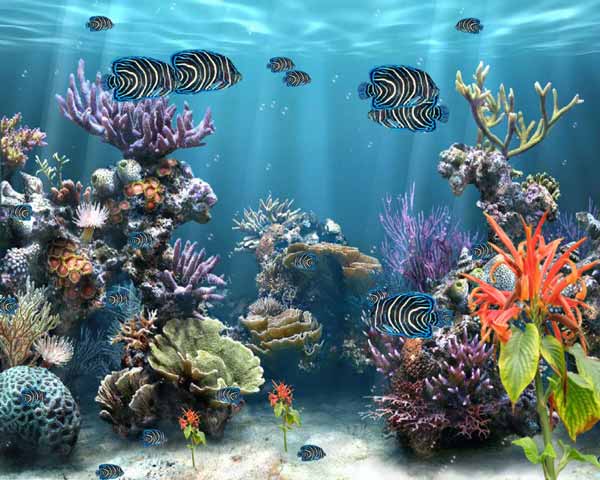IETV supports the 1point5tostayalive campaign ahead of COP 21 scheduled for Paris in December 2015 – Part 6
The warmer air and ocean surface temperatures brought on by climate change impact corals and alter coral reef communities by prompting coral bleaching and altering ocean chemistry, which affects corals and the many organisms that use coral reefs as their habitat.
Bleached corals are weak and less able to combat diseases. Warmer water temperatures brought on by climate change stress corals because they are very sensitive to changes in temperature. If water temperatures stay higher than usual for many weeks, the zooxanthellae they depend on for some of their food leave their tissue. Without zooxanthellae, corals turn white because zooxanthellae give corals their colour. White, unhealthy corals are called bleached.
Bleaching events on coral reefs around the globe were observed in 1998. In some Pacific islands, a little bit of bleaching is common in the summer; however, there have been times when bleaching is particularly bad in this region. As climate change continues, bleaching will become more common, and the overall health of coral reefs will decline.
Much of the carbon dioxide that enters the atmosphere dissolves into the ocean. In fact, the oceans have absorbed about 1/3 of the carbon dioxide produced from human activities since 1800 and about 1/2 of the carbon dioxide produced by burning fossil fuels. As carbon dioxide in the ocean increases, ocean pH decreases or becomes more acidic. This is called ocean acidification.
pH is a figure expressing the acidity or alkalinity of a solution on a logarithmic scale on which 7 is neutral, lower values are more acid, and higher values more alkaline.
With ocean acidification, corals cannot absorb the calcium carbonate they need to maintain their skeletons, so the stony skeletons that support corals and reefs will dissolve. Already, ocean acidification has lowered the pH of the ocean by about 0.11 units, moving the ocean’s pH from 8.179 to a current pH of 8.069, which means the ocean is about 30% more acidic now than it was in 1751.
If nothing is done to reduce carbon dioxide emissions into the atmosphere, ocean acidification will increase and more and more corals will be damaged or destroyed.
Ocean acidification affects more than just corals. Snails, clams, and urchins also make calcium carbonate shells and ocean acidification negatively impacts these organisms as well. Just like corals, ocean acidification makes it harder for these organisms to absorb the calcium carbonate they need to build their shells.
If we continue to produce carbon dioxide at the current rate, future atmospheric carbon dioxide will be high enough to lower ocean surface pH to 7.8 by the year 2100. A pH of this low level could dissolve coral skeletons and cause reefs to fall apart. If coral reefs are lost, vital habitat will be lost too. The future health of coral reefs and many marine organisms depends on our ability to reduce our carbon dioxide emissions on a global scale.
Future emissions depend on how many people there are on the planet, what energy sources we use, how much energy we use, and what new technologies we create, etc. The Intergovernmental Panel on Climate Change (IPCC) generates models that reflect different rates of population growth, economic growth, technology application, and social change. These models help us understand what climate change means for our future. They have demonstrated how the ocean pH may decrease as carbon dioxide emissions increase.
Coral reefs are extremely important for biodiversity, providing a home to over 25% of all marine life. They are also vital for people and business. They provide nurseries for many species of commercially important fish, protection of coastal areas from storm waves, and are a significant attraction for the tourism industry. Global warming could now mean a death sentence for many coral reefs. If the present rate of destruction continues, most of the world’s coral reefs could be killed within our lifetime.
Cop 21 must succeed where others have failed. We must cap the rise in temperature at 1.5 degrees Celsius or we will perish, which is why we have adopted the motto “1point5tostayalive”: 1.5 to stay alive! For videos that support this series, visit us on YouTube.















